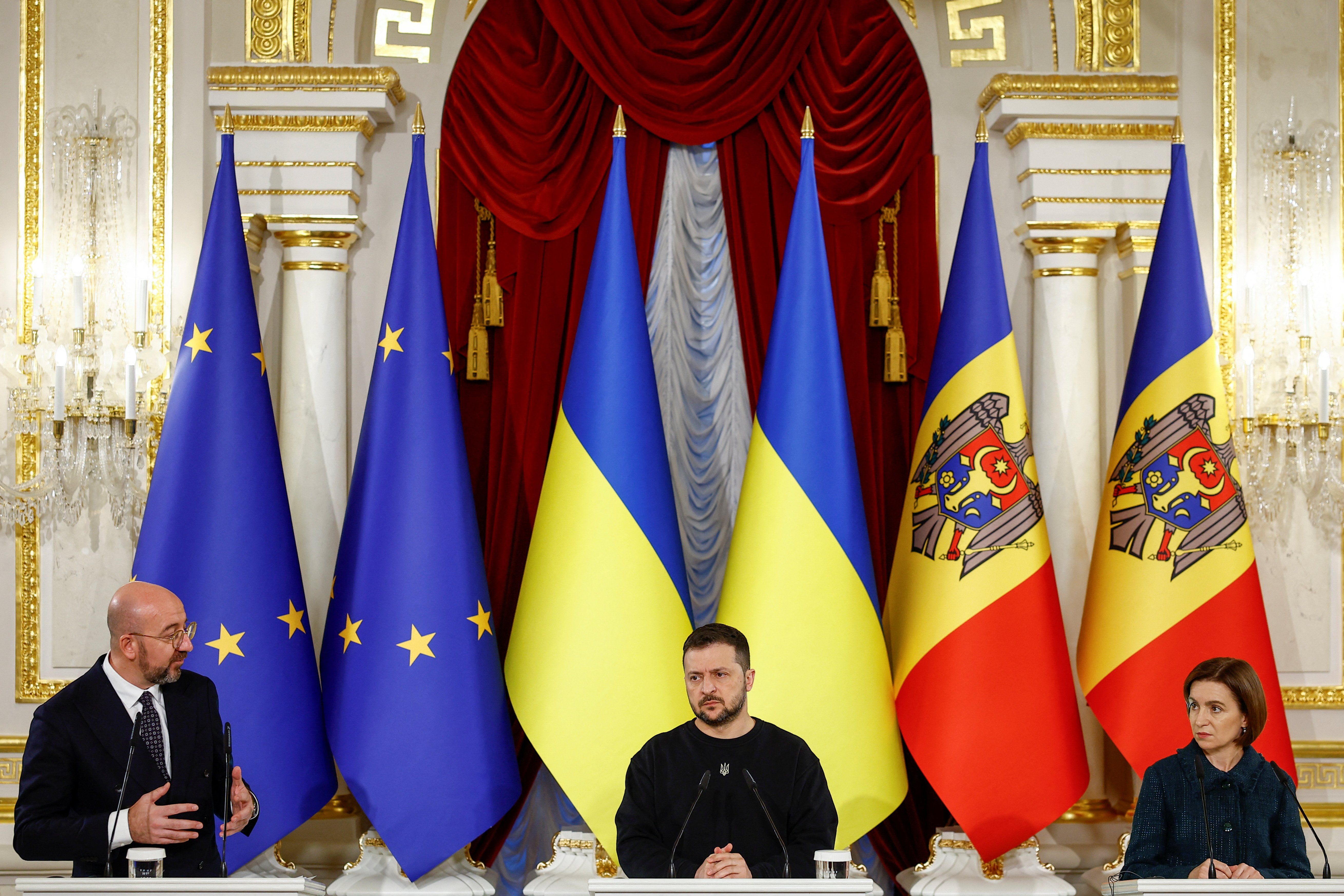The European Union has expanded to the East in recent years, but some would-be members remain in line to join the club.
On Tuesday, Ukraine and Moldova finally began talks to join the European Union after applying for membership within weeks of Russia’s 2022 invasion of Ukraine. (Ironically, it was Ukrainian protests over their president’s failure to sign a trade agreement with Europe that triggered the uprising that led Vladimir Putin to invade Crimea in 2014.)
Eager to encourage them, the EU has “fast-tracked” their processes, but aligning with the union’s dozens of policy requirements takes time. (Just ask Turkey, now entering its 20th year of talks.) Ukraine must also contend with efforts by Hungary’s government, Russia’s best European friend, to block Kyiv’s bid to join both the EU and NATO.
But the EU isn’t the only club open for new memberships. The eurozone, a monetary union comprised of 20 member states, told EU members Bulgaria and Romania they haven’t yet cleared the hurdles needed to adopt the euro. Bulgaria is close; of all the needed economic criteria, its high inflation is the only remaining barrier to entry. Romania must do much more to tame inflation, bribery, money laundering, and Russian influence on its policymaking.
